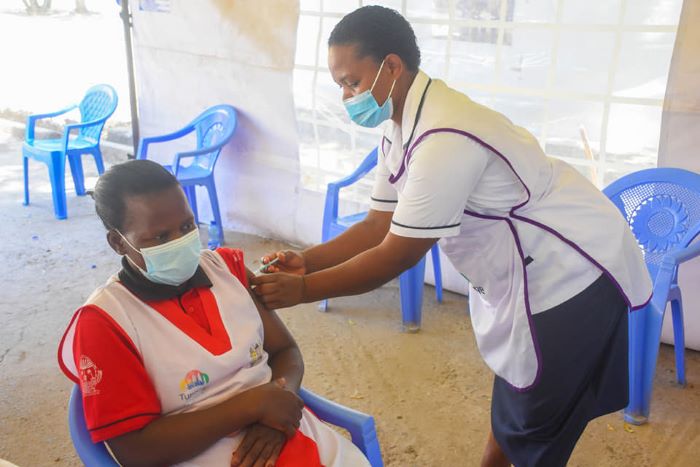840,000 doses of AstraZeneca vaccine donated to Kenya at the beginning of the year expired before being utilized.
According to the Ministry of Health, the country had received 2.2 million doses of the COVID-19 AstraZeneca vaccine through the Covax facility in January this year, their shelf life expiring on 28th February, 2022.
“These doses had bee distributed to the nine regional vaccines stores for utilization by counties,” said Health CAS Dr. Mercy Mwangangi.
Despite carrying out two campaigns, in January and February, with the aim of ensuring utilization of the doses before expiry, reports indicate that more than 800K of the doses expired.
“We have reviewed data returns from all 47 counties across the country and preliminary reports indicate close to 840,000 AstraZeneca vaccine doses received through the Covax facility have expired,” said Dr. Mwangangi.
“The reports indicate that every county has some expiries with the highest being Nakuru with 35,790 doses followed by BUsia 27,980 doses, Kajiado 25,770 doses, Kakamega 12,870 doses and Kwale with 11,730 doses,” she added.
Factors leading to the expiry of the doses
Several factors led to the expiry of the vaccine doses including complacency of Kenyans in taking up the jab following reduction in positivity rate and number of COVID-19 admissions.

“The daily vaccination rate has reduced from a high of 252,000 recorded early last month to an average of 30,000-40,000 daily. The uptake of second dose to ensure full vaccination status is declining while out of nearly 900k Kenyans eligible for booster dose only 270k have turned up and received their shot,” said Dr. Mwangangi.
Another factor is the preference of certain types of vaccines, which the health ministry says is worrying.
“Some people demanded certain typed of vaccines and when they were offered AstraZeneca they declined yet we have always emphasized that all vaccines that have been approved by the World Health Organization are effective in the prevention of severe diseases and need for hospitalization,” said the Health CAS.
Another factor mentioned by the ministry is hesitancy attributed to rumors and misinformation especially around fertility concerns.
“The rumors do not have any scientific evidence and are therefore baseless and must be ignored,” said Dr. Mwangangi.
Way forward
To avoid such expiries MoH said the country will only be accepting donation of vaccines whose shelf-life is at least four months at the time of delivery.
MoH will also be working with counties and partners to scale up communication towards demand generation and continuous community mobilization.
“It is worth noting that we are soon getting into the flu season which globally is associated with spike in COVID-19 infections. The time to get protected from possible risk of infection is now,” said the health CAS.
Meanwhile, 17.3 million doses of COVID-19 vaccines have been administered in the country. 7.9 million people have received their first dose while 7.9 million others are fully vaccinated, with 270,998 having gone for their booster dose.
One million doses have been administered to 15-17 year-olds.
“I urge all to continue adhering strictly to the containment measures that we have advised and also maintain the high levels of hygiene that we have already adopted as a country,” said CAS Mwangangi.
Comments
comments